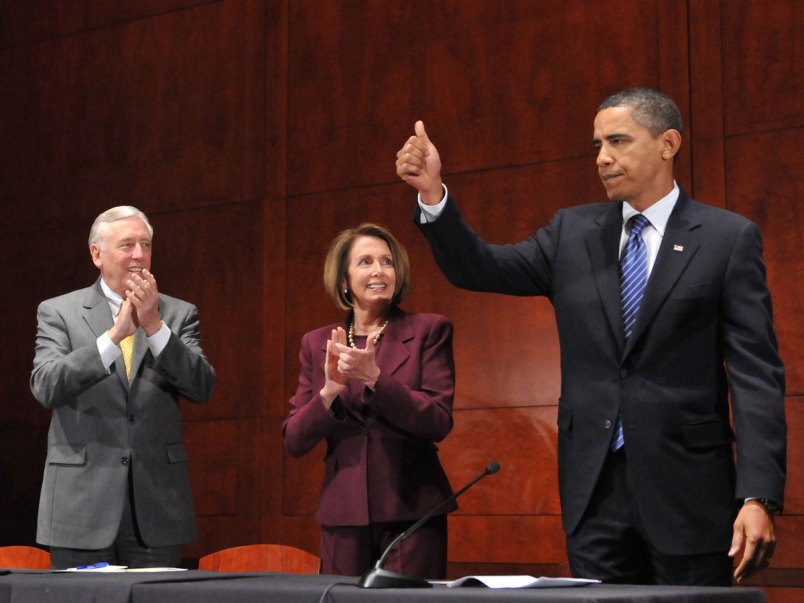Social Security benefit cuts may be a bridge too far for House Minority Leader Nancy Pelosi (D-CA). But what if Republicans and Democrats alike just agreed to refer to a benefit cut by another name.
That’s how key negotiators have decided to treat one policy proposal, popular in Washington, that would simultaneously raise tax revenues and reduce Social Security benefits. As explained at length here, the idea is to peg federal Cost of Living Adjustments to a new, stingier measure of inflation.
Experts say the new index (the so-called Chained Consumer Price Index) is a more realistic metric for measuring inflation’s impact on peoples’ behavior. But the fact remains that if the change goes through as part of a grand bargain to lower deficits and raise the debt limit, retirees will receive less money each month than they’re currently promised.
And if you think Democrats are playing dumb because they want a deal, think again. They’re some of the biggest supporters of this plan.
“We make the determinations right now for benefits based upon CPIU,” Rep. Jim Clyburn (D-SC), one of the Dems’ principal debt limit negotiators. He’s referring to the current index the government uses to calculate Social Security’s Cost of Living Adjustment. And that’s what they’re talking about changing. “Now the question is will some other look at CPI make sense? And I think that it makes sense to look at it all to see what is an accurate account, a better way to determine benefits. I certainly wouldn’t walk away from that kind of discussion.”
Reducing the COLA is something top Obama administration officials have wanted to do for a long time.
“The Consumer Price Indices currently used for indexation employ an outdated procedure that overstate inflation,” said Jason Furman, now the Deputy Director of the National Economic Council, in 2007 expert testimony before the Senate Budget Committee. “If all federal programs and taxes were switched to [Chained CPI] by the end of a decade the government would save more than $40 billion, with the bulk of the savings divided roughly equally between preventing de facto Social Security benefit increases and tax cuts that Congress never intended. Over time the savings would continue to grow.”
Not benefit cuts, but the prevention of de facto benefit increases.
Other economic officials in the White House have pushed hard behind the scenes for a bipartisan bargain to make Social Security more solvent. But only if Republicans were willing to put new revenues on the table.
“The ideal thing is to get more realists to use their enthusiasm for deficit reduction — their professed enthusiasm for deficit reduction — to lock them into the reality that something on revenues has to be part of the solution, and to make sure that nothing’s done on entitlements that’s damaging to our interests without making sure that revenues are on the table in a meaningful way,” one senior Treasury official told several reporters at a background roundtable meeting weeks ago.
The COLA tweak accomplishes this, though the revenues would not automatically be devoted to shoring up the Social Security trust fund.
And if you think the Obama administration has made such a decisive, abrupt push for fiscal responsibility because Republicans cowed them into it, think again. The same official noted there are “huge benefits” to debt reduction.
[Y]ou reduce the risk that all the pressure to reduce deficits falls on spending today, this year. So if you can make a credible commitment over time to phase in over time a balanced package, you take a huge amount of pressure off the risk that non-defense discretionary gets gutted….
You are much more likely to improve confidence in sustainability of an expansion if it looks like — if there’s a credible multi-year plan Congress will be held to that phases those things over time.
If it’s more balanced … there’s less risk to growth in the near term.
This bucking of orthodoxy via clever wordplay mirrors the cover Republicans give themselves from their base when they agree to close tax loopholes, despite pledging never to raise taxes. Only Democrats seem much more willing to play this game than the GOP.






